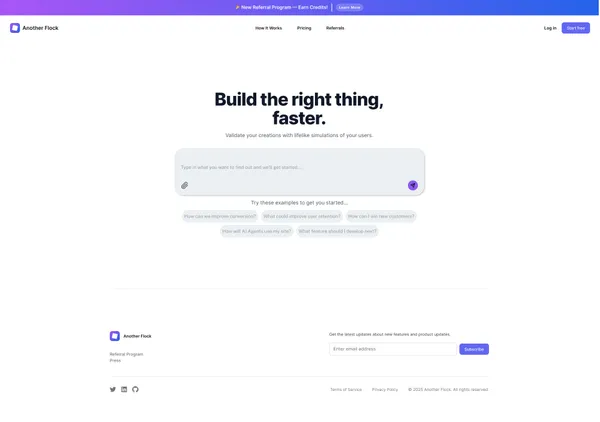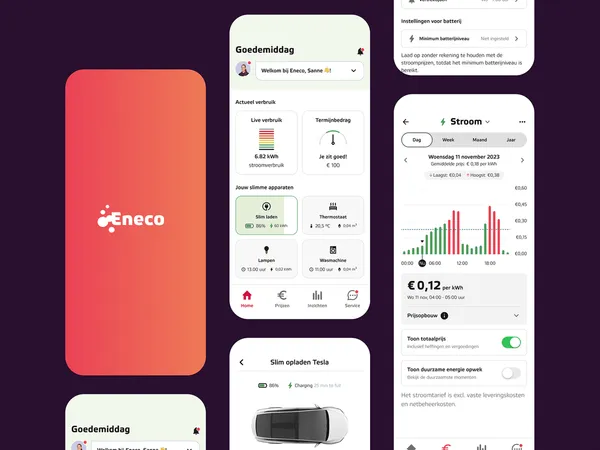Using AI to Boost Online Impulse Buys

The Challenge
A major global FMCG company identified a significant strategic challenge: impulse purchases that naturally occur in physical retail environments—grabbing chocolate at checkout, adding a complementary item to the basket—were dramatically underperforming in online channels. While e-commerce was growing rapidly, the lack of physical browsing and strategic product placement meant substantial revenue was being left on the table.
Traditional e-commerce recommendation engines focus on “customers who bought this also bought that” patterns, which work well for planned purchases but fail to replicate the spontaneous, contextual moments that drive impulse buying in stores. The company needed to find creative ways to leverage emerging AI technology to recreate these impulse purchase moments digitally, particularly through partnerships with major retailers where their products were sold.
The opportunity was substantial: even small increases in impulse purchase rates across millions of online transactions could generate significant incremental revenue. However, the solution needed to work within retailers’ existing e-commerce platforms and provide value to shoppers rather than feeling like intrusive upselling.
Our Approach
We worked with the company’s innovation team to explore how generative AI could enable more natural, conversational commerce experiences that encourage impulse purchases without disrupting the shopping journey. The focus was on identifying high-potential use cases and rapidly prototyping solutions to validate concepts before large-scale development investment.
Through strategic workshops and opportunity mapping, we identified the AI shopping assistant concept as the most promising avenue: a conversational interface that could suggest complementary product combinations based on what shoppers were already purchasing, current trends, seasonal occasions, and individual preferences—mimicking how an attentive store clerk might suggest relevant add-ons.
We developed a functional prototype of an AI-powered shopping assistant designed to integrate with retailer e-commerce platforms. The assistant analyzes shopping cart contents and shopper context to suggest relevant product combinations—for example, recommending specific snack products for a movie night when a shopper adds beverages to their cart, or suggesting baking supplies for an upcoming holiday.
The prototype leveraged large language models to generate contextually appropriate, conversational suggestions rather than generic product recommendations. This approach created more natural interactions that felt helpful rather than salesy, while surfacing products shoppers might not have discovered through traditional search or browsing.
Critically, the solution was designed as a partnership model with retailers: the AI assistant would help retailers increase basket sizes and improve customer experience, while naturally highlighting the FMCG company’s products in relevant contexts. This alignment of incentives made the proposition more attractive for retail partnerships than purely brand-focused approaches.
Results
The strategic opportunity identification and prototype development demonstrated how established FMCG brands can leverage AI to address shifting consumer behaviors and unlock new revenue streams in digital channels. The working prototype provided a tangible proof-of-concept for how conversational AI can recreate impulse purchase moments that traditionally relied on physical retail environments.
The project validated the technical feasibility of integrating AI shopping assistants into existing e-commerce platforms and demonstrated how AI-powered product suggestions could feel more natural and helpful than traditional recommendation algorithms.
Perhaps most importantly, the work established a strategic framework for thinking about AI not just as an efficiency tool but as a capability for driving measurable product-led revenue growth—showing how creative application of generative AI can address specific business challenges rather than implementing AI for its own sake.
Key Outcomes
- Strategic opportunity identified: AI-powered impulse purchase creation for online channels
- Functional prototype built demonstrating AI shopping assistant capability
- Partnership model developed aligning FMCG brand interests with retailer incentives
- Validated approach for conversational commerce that feels helpful rather than intrusive
- Demonstrated capability to rapidly move from strategic insight to working prototype
- Framework established for leveraging AI to drive product-led revenue growth in e-commerce
- Proof-of-concept for how AI can address revenue gaps created by digital transformation
Similar Case Studies
View All
We Built an AI Research Tool in a Month
We built Another Flock's AI research platform in just one month—from initial concept to live product. It gives teams instant synthetic user feedback on their ideas, designs, and marketing materials.

Launching a New Energy Pricing Model
We helped Eneco launch one of the Netherlands' first major dynamic energy tariffs in September 2023. Through user research, rapid prototyping, and brand work, we created a proposition that attracted environmentally conscious customers looking for more control over their energy costs.

Growing the Heat Pump Visitor Programme
We built Nesta's 'Visit a Heat Pump' platform by talking to homeowners and installers every week to understand what they needed. The platform now connects people who want to see heat pumps in real homes with 450+ hosts, and has facilitated over 600 visits.